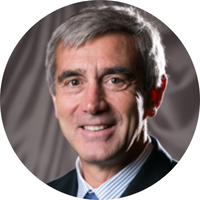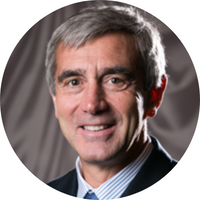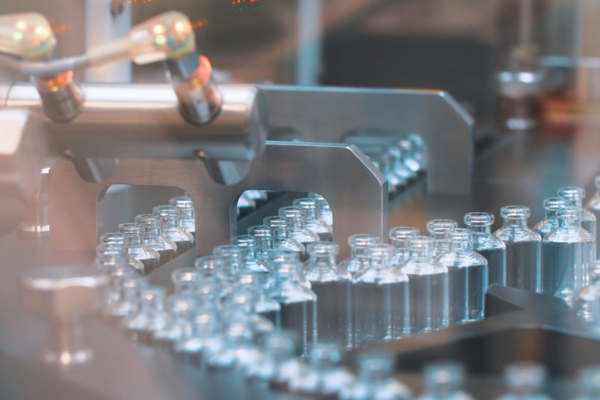
Key Takeaways:
- What motivates Philippe Knaub to take on so much as CTO of FXI, Inc.
- Non-technical skills he values the most as a scientist
- A macro perspective on the evolution of the global markets, according to Knaub
The CTO’s role is exceptionally demanding. Apart from possessing technical expertise and business acumen, you need to manage global teams, evaluate opportunities, shepherd projects, deliver results, and much more. What motivates you to take that on?
Indeed, the CTO role, like many executive roles, is a very busy one and prioritization on a daily basis, as well as work/life balance are challenges that are very real. What makes me get up every day with a keen enthusiasm to go to work is the prospect of inventing new solutions that will make a difference both for FXI and for our many customers and end users.
The challenges are immense and competition is formidable in the world of polyurethane foams and this fuels my motivation and quest to be the best in the industry.
Although I have directed global teams for over 20 years, FXI is mainly focused in North America, so having my teams on 3 hour time zones instead of 20 is a real blessing, but I do miss the diversity in culture and thoughts that the global jobs provided. I truly believe in diversity and we are fortunate to have a very diverse workforce at FXI and in R&D specifically, where creativity and imagination are paramount to innovation.
FXI is in the business of producing foam for a remarkable number of commercial applications, such as automobiles, mattresses, healthcare, electronics, and personal care, to name a few. As the CTO, how do you decide how to allocate your time pursuing advances in these disparate applications?
At FXI, we are all aligned behind our company strategy that in turn cascades into business strategies and R&D is fully aligned with. Bedding and furniture and automotive are the largest businesses at FXI and therefore get the most significant portion of our resources.
The other industries get prioritized based on customer demands or industry challenges, and we allocate resources based on either maintaining the business or the potential growth for new applications.
Last, but not least, the need for new capital for a given application either to pour a new foam or to further build a foam-based solution is a critical element that is taken into account at the early stages of any project. Like most companies, we use a stage gate process in order to build the discipline to select, track and staff all of our projects. Because of our unique industry, we felt that it was important to build our own process, learning from decades of industry experience, but balancing the rigor of the method with the nimbleness needed to accelerate our speed to market.
Finally, I face the same challenge as every R&D leader. I must balance the short term urgent line extension of value preservation projects with the longer term break-through innovations that have the potential to revolutionize the industry, but are longer term and higher risk. At FXI, we solve this dilemma by agreeing upfront at the executive team level about this resource split in line with our strategy.
Among your scientists at FXI, what non-technical skills do you most highly value?
Several non-technical skills are critical to the success of a scientist at FXI and I would argue in most modern research groups. The first one is team work and how a scientist can interact and integrate within a group. Any individual contributor will be sublimated when immersed in the right team and see his/her efforts increase in an exponential manner.
Hand in hand with teamwork, I value very highly individuals with great interpersonal skills. They not only excel within a team but also vertically and horizontally across the organization. They contribute to the energy of a group and are the catalyst that leads to excellence and excitement that make the researchers get up every day and look forward to coming to work and making a difference.
Classical leadership traits, like hard working and driving for results, can of course not be forgotten. One last skill I would like to highlight is persistence. One thing we all learn in R&D is that we more often fail than succeed and the researchers with a high “batting average” are usually the ones that take low risks and work on line extension projects only. Statistics don’t lie (or rarely do) and break-through projects have a much higher chance to fail than to succeed. And the ones that succeed have many disappointments and redirections along the way, and only succeed thanks to the persistence of the individuals that work on them. This trait of character is most efficient when associated with a touch of optimism: the people seeing the glass half full and always looking for the bottle to top it off.
I realize that it may take more than one person to do all that, which brings me back to the teamwork theme I started with and the team composition. I have spent a lot of time over the years and paid a lot of attention to find the right blend of individuals that create the perfect team. At the time I worked for Dow Chemical, one of our great R&D leaders, Kurt Swogger, studied his group and found out that. Having more creative minds who typically cannot implement their ideas or even sort out the good ones from the wild ones, leads to an organization with a very robust front end full of ideas but no one to bring them to conclusion. On the other hand, an organization with too few creative minds and only finishers ends up working only on value preservation, line extension and never invent anything new.
What are some of the ways you try to develop and retain young talent at FXI?
This is a very important challenge we all face, especially in the US where the talent pool is shrinking, especially for technical (non- IT) resources. We spend a lot of energy and money to attract the best talent, then we spend more money to train them, so losing top talent after a few years has disastrous consequences.
Just like for rewards and recognitions, it is always best to target retention strategies to individuals and tailor the programs to address individual needs. With millennials, it may be more around work/life balance expectations and letting them write technical reports from home, avoiding long commutes a day or two a week. For more experienced individuals, a position of mentoring young professionals may be what is most appealing.
In all cases, offering technical trainings, either in the field of their research if they are new or in a new field, if it matches with the company growth strategy, is also critical, as in my experience, most if not all researchers have an almost infinite quest for learning and new technologies.
What technology trends are you following most closely, with an eye toward how they may impact FXI’s future business opportunities?
There are many, but I will cite a few that I believe will be critical for the future. Low Volatile Organic Compounds (VOC) for transportation (indoor vehicles) and bedding is gaining a lot of traction in these industries, but I believe this will grow to essentially all of the foams we manufacture in the future.
In the bedding industry, with the explosion of online shopping, the mattress in a box evolved from a concept a few years ago to the fastest growing segment of the industry. It comes with challenges, as being able to compress the foam, shorten the time to deliver the mattress to any customer in the U.S. and improve comfort and the sleep experience for the end users.
Another trend, directly linked to the ageing population in the US, is the need for more medical and paramedical equipment, as well as novel technologies to improve the end of life experience of our seniors.
The last challenge I would like to list is the broad challenge of sustainability and circular economy. This issue is not specific to FXI or to the flexible polyurethane industry, but a much broader and deeper societal challenge. Right now, the main pressure is on the thermoplastics, especially the single use applications like in packaging; however, the PU industry becomes under more and more scrutiny.
In Europe, the bedding and automotive industries have organized themselves to collect the foam, as well as all other raw materials present, and are studying various solutions: from reincorporating some of the recycled material to virgin material or using the recycled foam to make new foams (like rebond foam for carpet underlay or Judo and gym matts) or improving the biodegradability or compostability. Another approach has been to use bio-based building blocks, mainly polyols based on corn, soybean or castor oil, to move away from oil / petroleum based feedstocks. Several states in the U.S. have started mattress collection, financed by a tax on new purchases, that is promising and may spread to the rest of the country and give the needed recycle critical mass to have an impact on this industry.
You have been focused on global markets – albeit supporting different types of products - for at least 20 years. From a macro perspective, how has competing in global markets evolved since your earlier career days?
As stated earlier, my current role at FXI mainly focuses on North American markets, but I did spend over two decades before that in global roles. When I got my first global role, which ironically was already in flexible polyurethane foams, the world was a very different place. We traveled without cellular phones, or with cell phones that only worked in one zone, had to rely on a modem to get access to mail and files, and an excel file of 100k bytes was considered large and would block your inbox for 10 minutes. The relevance of this is that at the time, communication was not instantaneous and markets were still a lot more regional. The strategy was simply to move production either to places where feedstock were cheaper or more abundant or to places where manpower was less expensive. Transfer of technology required a lot of expat employees spending years in those countries to develop the products or the factories that would make this happen.
Today, automation has made huge progress and communication is instantaneous. A lot more oil and less sand in the cogs and a lot more possibilities exist today that will make the global economy even more prominent in the decades to come.
What have you learned about managing business relationships with people, that you didn’t know when you were younger?
Becoming a seasoned leader comes with its lot of advantages and drawbacks. When I reflect on the type of leader I was several decades ago, I was really rough around the edges. Like most young leaders, I knew it all and just had to explain to others why they were wrong and never ceased to be amazed that it took them so long to come to trust that my proposed approach would be successful.
Earlier in my career, I tended to be more aggressive. The good news is that I do listen to feedback and I had several great bosses, mentors and colleagues over the years that helped shape my personality, keeping the strong will, push for results and drive that I had, but wrapping it up in a way that was a lot more acceptable to most cultures and personalities, as well as becoming a better listener. It is amazing how much one can learn from others by simply asking the right questions and making a concerted effort to listen to their answers and analyzing them before taking a decision. This is applicable internally, but also with suppliers, customers and in private settings.
How did your parents influence your leadership style?
My parents come from a very modest background in France. They taught me the value of money and how to be happy with what you have and not what others may have. They taught me the values of trust, honesty and hard work. My mother taught me kindness, giving people a second chance and always assuming the best in people. My father worked two jobs to be able to build our home, has a great business acumen, and is a real craftsman who can build anything with his hands and his head. I try to draw from this happy childhood in my leadership style, trying to be honest and open with people and always treat others as I would like to be treated.
Your education and career have taken you to many places around the world. Which location provides you with the fondest memories?
I have had the chance to work or travel to all major continents (except Antarctica) and these experiences have shaped my personality and helped me to be more tolerant and appreciative of true diversity.
I get this question often. Since I had the chance to travel to those places with my wife and four kids, each place brought its lot of wonders. Building a sand castle on a Texan beach or skiing in the Swiss Alps with family or friends, or snowmobiling in Northern Michigan with the kids… There are so many great places to choose from.
If I ask my family, probably our stays in Geneva, Switzerland will be on top of the list, whether we lived on the Swiss or French side (I did both). This country is just wonderful, and for us, who grew up less than 3 hours away from there and are mountain lovers, it certainly brought us a lot of joy and laughter.
As most Frenchmen, I love wining and dining and this is an integral part of our family experience. The Geneva area offers great opportunities with gourmet restaurants, open air markets and is only a couple of hours away from Lyon, where I studied, and which is the gastronomy capital of France and Burgundy, which is for me my second home, and where Pinot Noir and Chardonnay give birth to what I consider the best wines in the world.

Philippe M. Knaub is the Senior Vice President and Chief Technology Officer, FXI Inc., headquartered in Radnor, PA. In this capacity, he is responsible for all R&D activities for the group and sits on the Executive team of FXI.
A 30+ years veteran in the chemicals and plastics industry, Dr. Knaub has directed global teams for the past 20 years and lived and worked in several countries and continents. He has been working at FXI for four years and driving breakthrough innovations in the field of flexible polyurethane (PU) foams in areas like home furnishings, transportation, medical and technical foams.
Prior to that, Dr. Knaub worked for The Dow Chemical Company, which he joined in 1987 in Terneuzen, NL, where he worked in PU rigid and flexible foams and held increasingly higher responsibilities in R&D, TS&D and Marketing in Switzerland and Texas. Dr. Knaub then moved to other businesses as a global R&D director, namely Engineering Plastics, Styrenics, Thermosets, Specialty Chemicals, and Emulsion Polymers. He then moved to Styron, now Trinseo as the global R&D director for the latex business.
Dr. Knaub has a PhD in Polymer Science from The Institut National des Sciences Appliquees (INSA) in Lyon, France, an M.S. in Macromolecular Science from University Lyon I in France and a B.S. from INSA in Material Science.
This article has been edited for length and clarity. The opinions expressed in this article are the author's own and do not necessarily reflect the view of their employer or the American Chemical Society.








